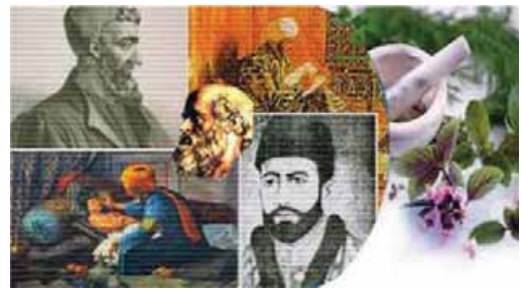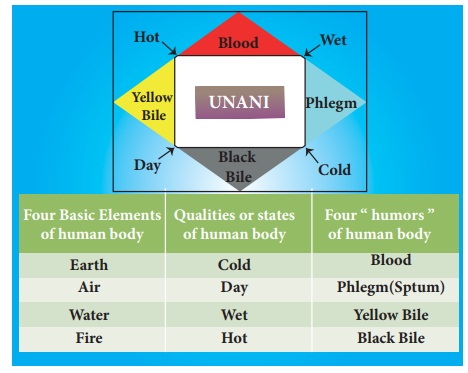Definition, Origin, Principles, Diagnosis, Modes of Treatment - Unani System of Medicine | 11th Nursing : Chapter 12 : Alternative Medicine and Practices in Nursing
Chapter: 11th Nursing : Chapter 12 : Alternative Medicine and Practices in Nursing
Unani System of Medicine
Unani System of Medicine
Introduction
The Unani system of
Medicine has a long and impressive record in India. It was introduced in India
by the Arabs and Persians sometime around the eleventh century. Today, India is
one of the leading countries in so far as the practice of Unani medicne in
concerned. It has the largest number of Unani educational, research and health
care Institutions.

Origin
Unani system of
medicines originated in Greece and is based on the teaching of Hippocrates and
Galen.
Unani medicine is
substantially based on Ibn Sina’s The
Canon of Medicine (11th century).
The medical tradition
of medieval Islam was introduced to India by the 13th century with the
establishment of the Delhi Sultanate and it took its own course of development
during the Mughal Empire, influenced by Indian medical teachings of Sushruta
and Charaka. Alauddin Khalji (d. 1316) had several eminent physicians (Hakims)
at his royal courts. This royal patronage meant development of Unani practice
in India, but also of Unani literature with the aid of Indian Ayurvedic
physicians.
Principles
According to
principles of Unani, body is made up of following proximal qualities. They are
·
Four basic elements of human body
·
Qualities or states of human body
·
Four “humors” of human body

Diagnosis
Unani system has shown
remarkable results in curing the disease like Arthritis, Lecucoderma, Jaundice,
Liver disorder, Bronchial, asthma etc.,
At present unani
system of medicine with its own recognized practitioners, hospitals, and
educational & research institutions forms an integral part of the national
healthcare system.
Modes of Treatment
·
Regimental Therapy-includes venesection, cupping, diaphoresis,
Turkish bath, massages, exercise, leeching
·
Diet Therapy-Administration of specific diets.
·
Pharmocotherapy-Mainly dependent upon local available herbal
drugs.
·
Surgery
Related Topics